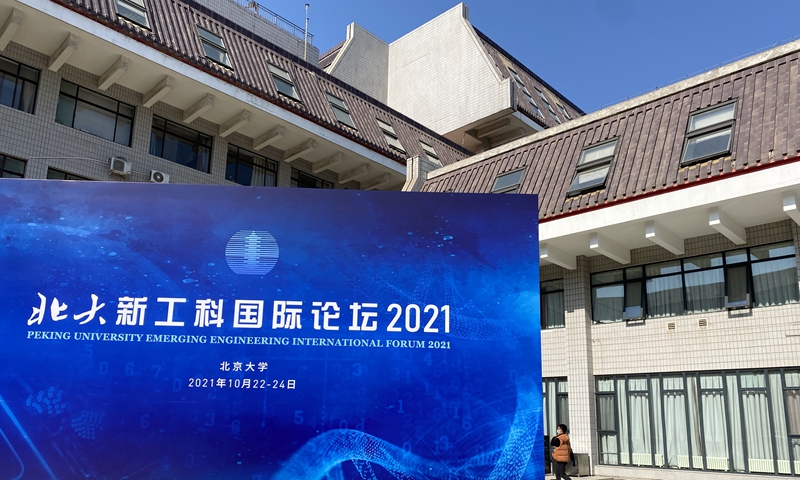Peking University, October 25, 2021: The
number of people involved in artificial intelligence (AI) in China has
increased enormously thanks to the government's commitment to developing
the booming sector and the considerable value placed on higher
education, but it may take another five years for China's AI to really
come up to world standards, said John Hopcroft, a Turing Award winner,
Professor at Cornell University and Visiting Chair Professor of Peking
University.
John Hopcroft, a Turing Award
winner, Professor at Cornell University and Visiting Chair Professor of
Peking University, attends the first Peking University Emerging
Engineering International Forum in Beijing on Saturday.
China now leads in AI journal citations after surpassing the US in the
total number of journal publications several years ago, according to the
2021 AI Index Report by Stanford University.
Li Yanhong, CEO of Chinese internet giant Baidu, said on Saturday that
the company will cultivate 5 million AI experts for society over the
next five years.
One thing that makes US universities so great is the talent that they
get from China, but "the problem between China and the US is, there's a
lot of negative and false information about China," Hopcroft told the
Global Times in an exclusive interview at the first Peking University
Emerging Engineering International Forum held in Beijing on Saturday.
While the US government, whose acrimony with China has increasingly
spread to the technology sector, some politicians and scholars in the US
have also been hyping the "China threat theory."
For instance, in a report by the Financial Times earlier this month, the
former Pentagon software chief said that the failure of the US to
respond to Chinese cyber and other threats was putting his children's
futures at risk, and the US has "no competing fighting chance against
China in 15 to 20 years."
Hopcroft frowned upon "technology cold war," another term that is frequently cited by the media and politicians.
"Using the word 'war' gives the general population the wrong idea. What
we should say is China is going to be a strong economic competitor.
We've got to increase our competition; it's not a fight," Hopcroft
pointed out.

The first Peking University Emerging Engineering International Forum is held in Beijing on Saturday.
Teaching at several prestigious universities in China as well, he called
on breaking down barriers to China-US people-to-people exchanges in the
educational sector.
"China is going to become the dominant economic power in the world
eventually, because you have four times the population of the US. The US
should be figuring out how we should work with China," Hopcroft
suggested.
"We're no longer going to be the dominant economic power, but that
doesn't mean we shouldn't be the major ones to figure out how to
interact. If we separate, then nations are going to fall into two
categories," Hopcroft warned.
Helping to improve China's undergraduate instruction, the Turing Award
recipient will teach top-level freshmen at Peking University. He said
"the class is stronger than the incoming classes at Berkeley, Stanford
or Cornell."
Peking University is pushing a strategy named Emerging Engineering and
Development, a move for the prestigious university to respond to the
rising challenges and unprecedented worldwide problems including
environmental pollution, cybersecurity and energy crises.
Chinese government officials, school leadership and the faculty
underscored the necessity and urgency of developing emerging engineering
disciplines at Saturday's forum, saying the country still has some
bottleneck difficulties.
China, as a developing country, still faces many bottlenecks in the
engineering and technology sectors, so core technologies and excellent
engineering education are badly needed, Qiu Shuiping, secretary of the
Party committee of Peking University, said at the forum.
The construction plan of Emerging Engineering and Development is a
response to the new round of scientific and technological revolution and
industrial transformation across the globe, Wu Yan, director of the
Higher Education Department at the Ministry of Education, said at the
forum.
"It should also serve the nation's economic and social development," Wu noted.
Thirteen colleges, research institutions and research centers have been
designated as major construction units under the Emerging Engineering
and Development strategy, covering the disciplines of core technologies,
advanced chips, air pollution controls and basic materials.
Source: Global Times

